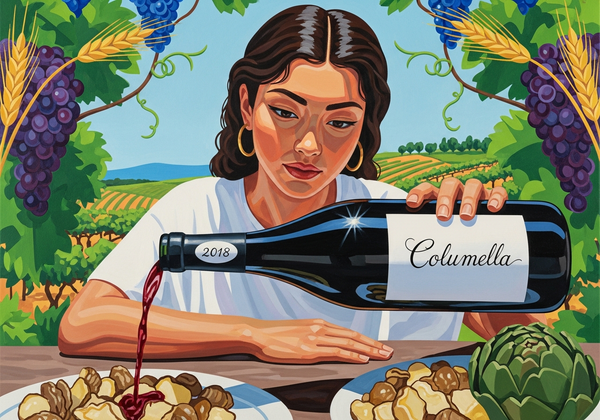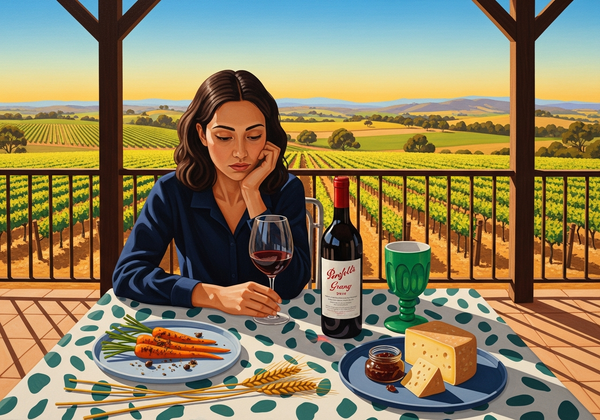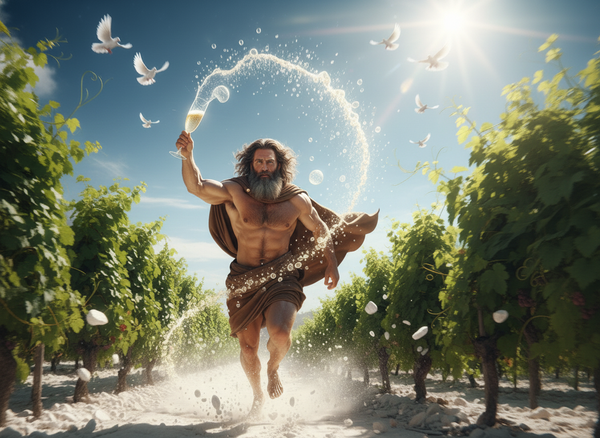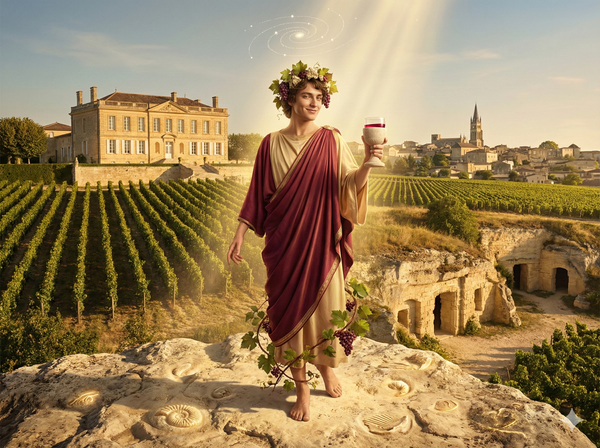“Champagne Salon: The Singular Obsession” One man, one grape, one vineyard, one wine — Salon built an empire of rarity by refusing to do anything twice.
Champagne Salon, founded in 1911 by Eugène-Aimé Salon, makes only one wine: a Blanc de Blancs from Le Mesnil-sur-Oger. Produced only in great vintages and in tiny quantities, Salon is Champagne’s rarest and most singular obsession.
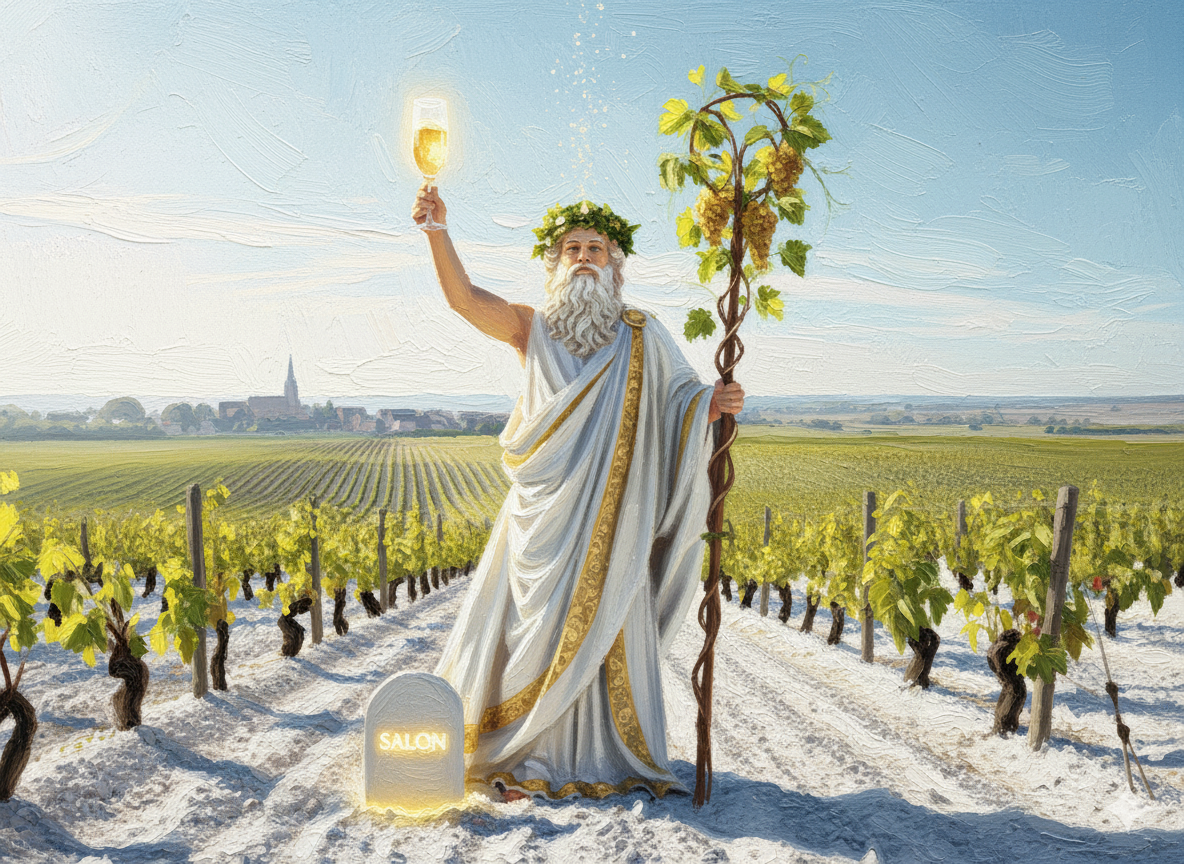
The Origins: The Dream of Eugène-Aimé Salon
Most Champagne houses are dynasties — Moët, Bollinger, Pol Roger — built over centuries, guided by family legacies. But Champagne Salon was born from one man’s obsession.
At the dawn of the 20th century, Eugène-Aimé Salon, a fur trader turned Champagne devotee, decided that the existing wines of the region weren’t enough. He dreamed of a Champagne that was pure, mineral, uncompromising, made only from Chardonnay in the finest terroir of the Côte des Blancs: Le Mesnil-sur-Oger.
In 1905, he began experimenting. In 1911, he produced the first vintage of Salon Blanc de Blancs — a wine so radical at the time that it bordered on heresy. No Pinot Noir. No Pinot Meunier. No blends. Just Chardonnay from a single village, a single idea.
The Philosophy: One Wine, One Voice
Unlike every other grande marque in Champagne, Salon does not produce a range. There is no non-vintage, no rosé, no prestige cuvée above the prestige. There is only Salon.
- Single Vineyard: Grapes sourced exclusively from Le Mesnil-sur-Oger, the most prized of all Côte des Blancs crus.
- Single Grape: 100% Chardonnay, long before Blanc de Blancs became fashionable.
- Single Wine: No second label, no distractions.
- Vintage Only: Salon is produced only in declared years — often fewer than three vintages per decade. If the year doesn’t measure up, Salon does not exist.
This philosophy makes Salon one of the rarest wines in the world. In its first 100 years, only 39 vintages were released.
The Wine: Purity and Patience
So what is Salon in the glass?
- Youth: Razor-sharp acidity, citrus, green apple, chalky minerality, sometimes austere.
- Maturity: After decades (Salon is built for decades), it blossoms into honey, brioche, hazelnut, cream — yet always underpinned by that Le Mesnil steel.
- Structure: Where other Champagnes seduce, Salon demands patience. It is not made to charm; it is made to endure.
Salon is not Champagne for every occasion. It is Champagne for moments that must be remembered.
The House: From Eugène to Laurent-Perrier
After Eugène Salon’s death in 1943, the house carried on his vision with tiny production, supplying mostly connoisseurs and insiders. In 1988, Salon was acquired by the Laurent-Perrier group, which also owns Delamotte — Salon’s quiet sibling.
Delamotte absorbs Salon’s grapes in weaker years, ensuring that no fruit is wasted, while Salon itself remains unyielding: it exists only when greatness is undeniable.
Production remains microscopic — rarely more than 60,000 bottles per vintage — making it not just a Champagne, but a collectible artifact.
The Cult: Champagne’s Holy Grail
For collectors, Salon is not merely wine. It is legend. A bottle of Salon is an event.
Its rarity fuels its cult. Allocations vanish instantly. Auction prices soar. Sommeliers whisper vintages like spells: 1966, 1982, 1996, 2008. Each release is a reference point for Blanc de Blancs, a benchmark against which others are measured.
In the world of Champagne, Krug may be the orchestra, Dom Pérignon the cathedral — but Salon is the soloist, one perfect voice that silences the room.
Liber’s Take: The Power of Refusal
What fascinates me about Salon is not what it makes, but what it refuses to make. No rosé. No demi-sec. No multi-vintage blends to “smooth the edges.” Salon exists only when the year deserves it, only in one voice, one form.
That is not marketing. That is faith. Faith that the truth of Le Mesnil needs no dilution, no chorus, no apology.
Like me, Salon celebrates liberation — not through abundance, but through singularity. It teaches us that greatness can be narrow, precise, uncompromising.
To drink Salon is to drink freedom distilled into one decision: this, or nothing.
Conclusion: Why Salon Matters
In a region built on blending, Salon is the heretic who became the prophet. It showed that Chardonnay alone, from one place, in one vintage, could make not just Champagne — but immortality.
Champagne Salon: the singular obsession, the Holy Grail of bubbles.


